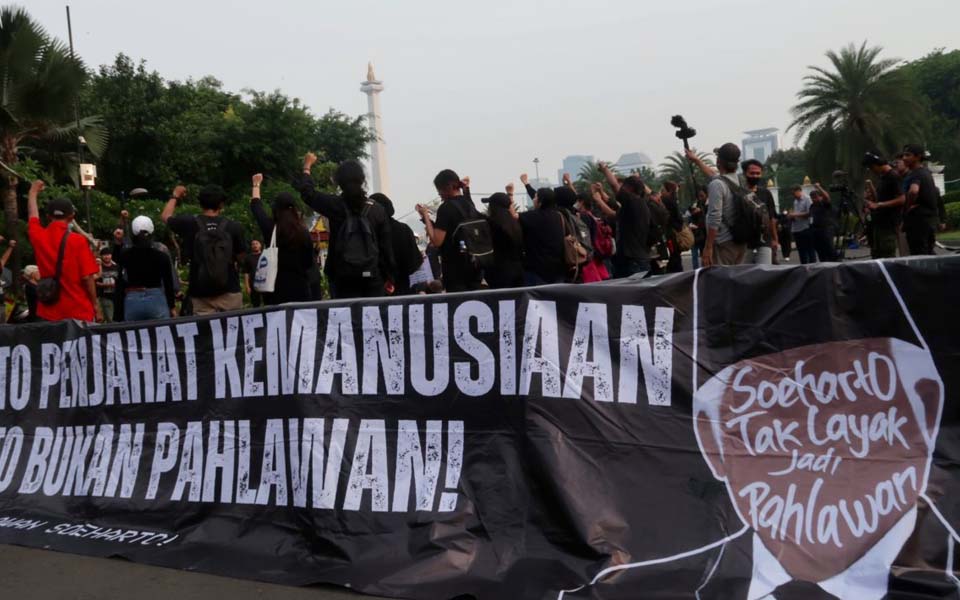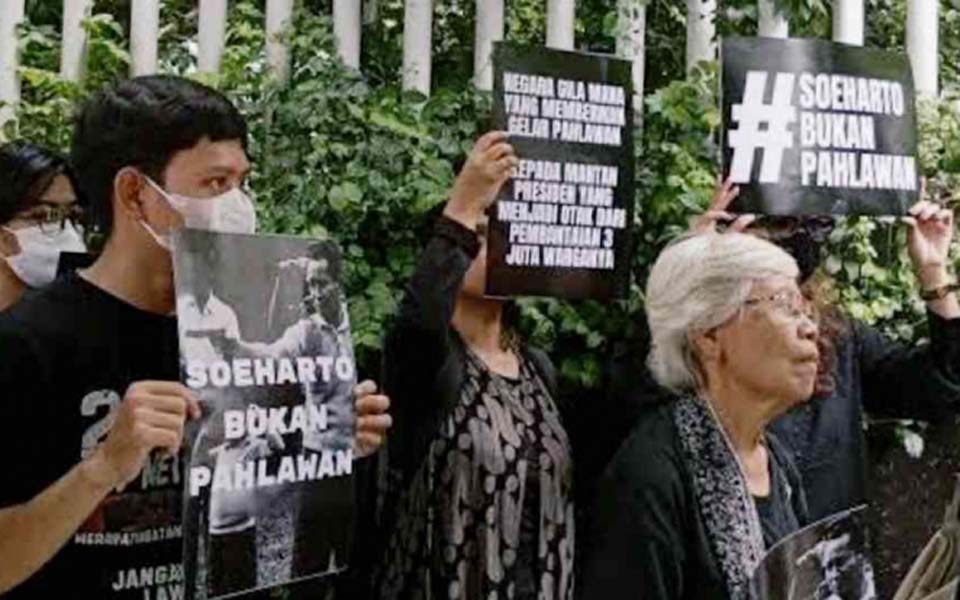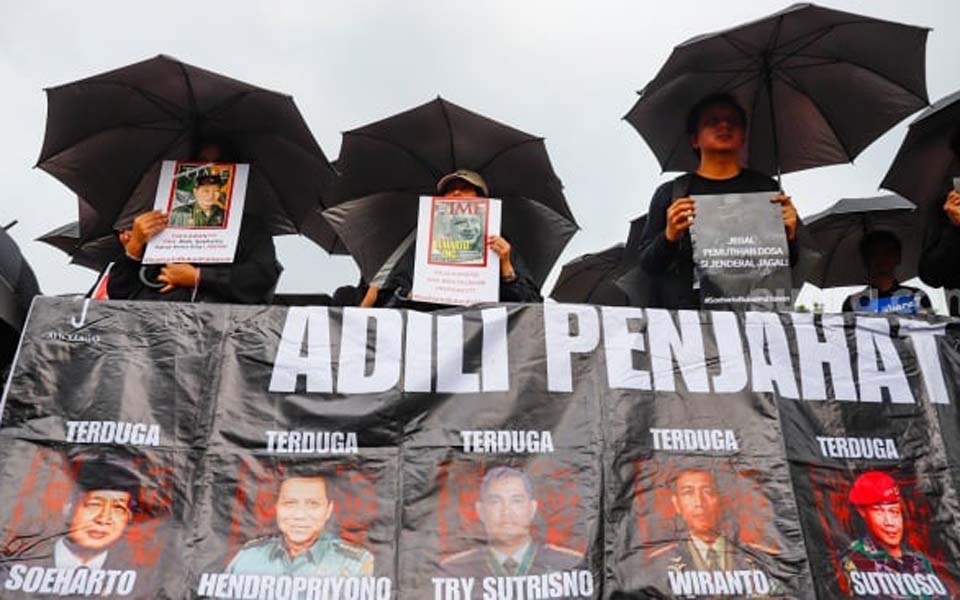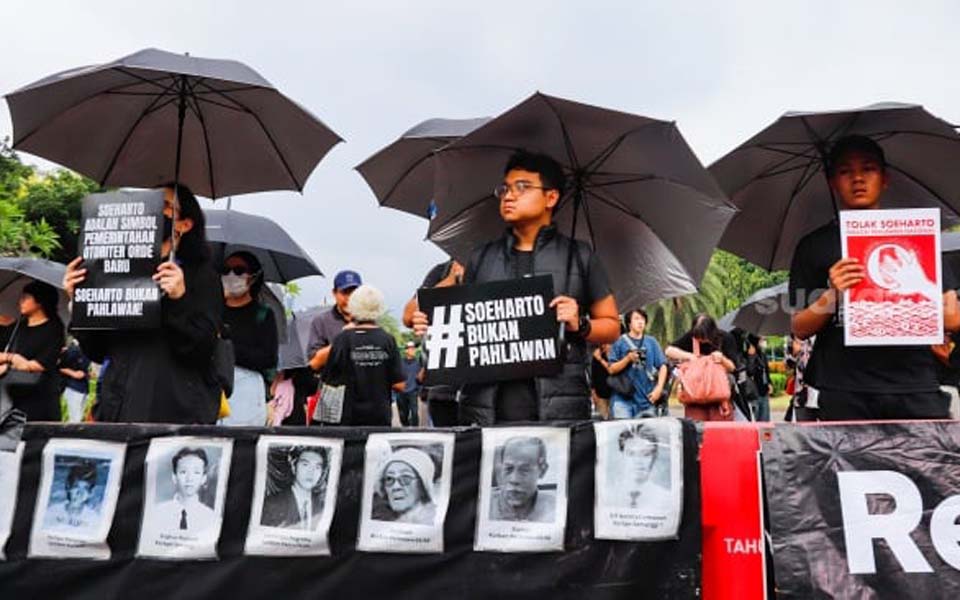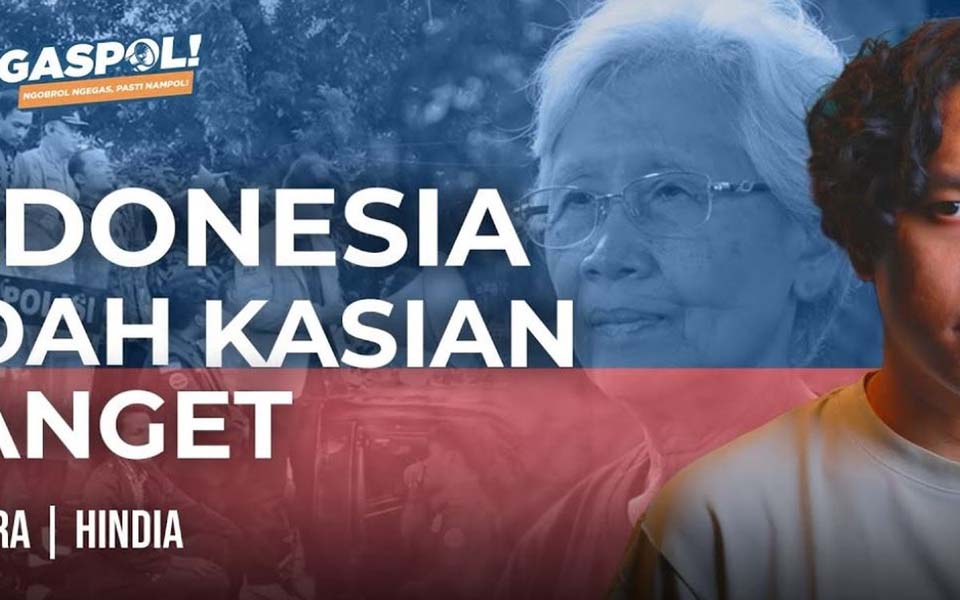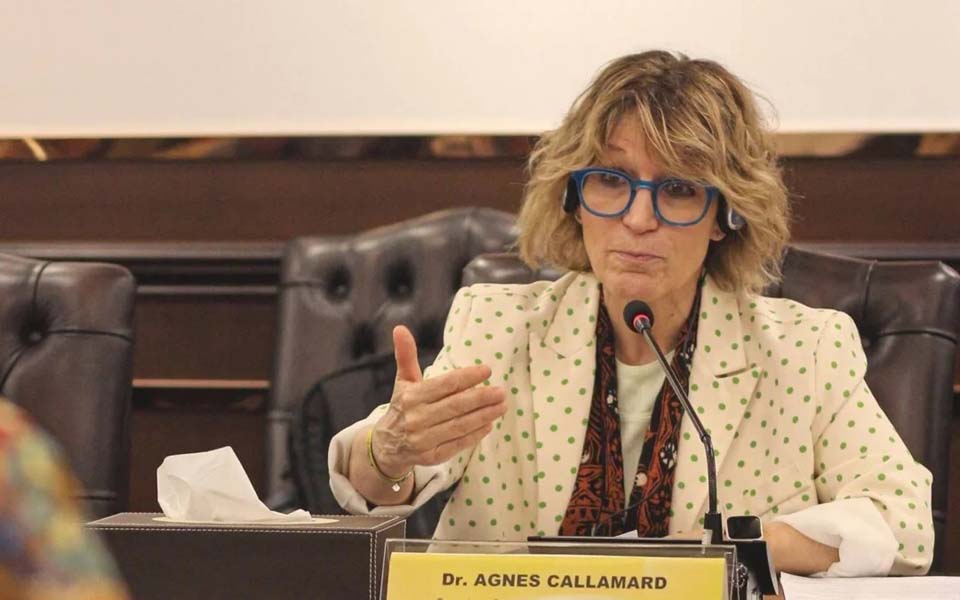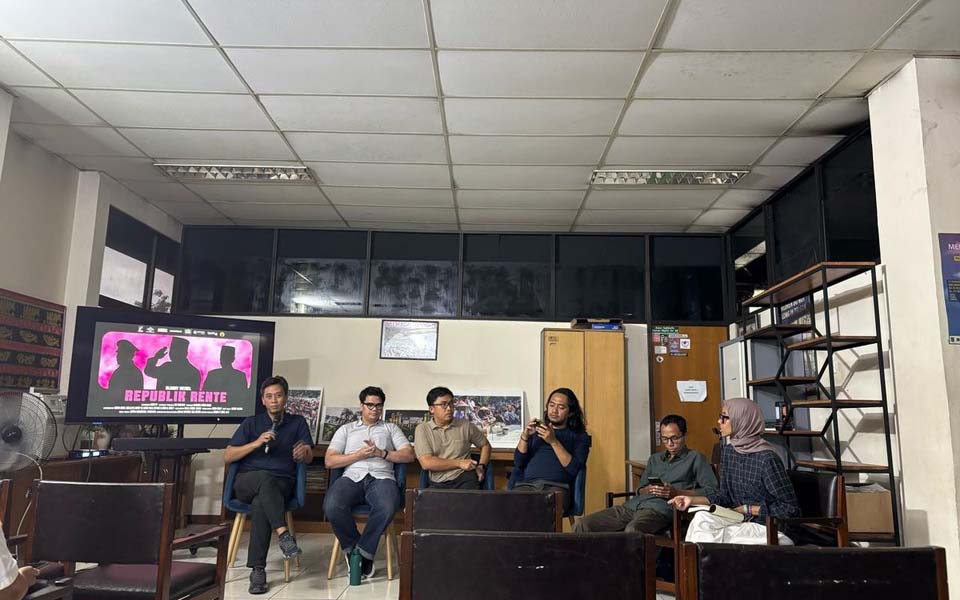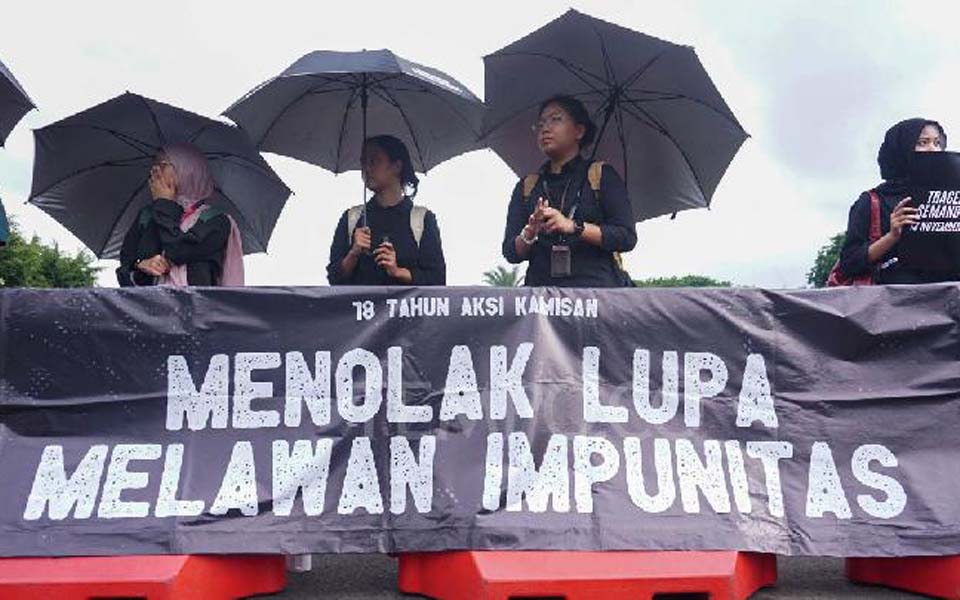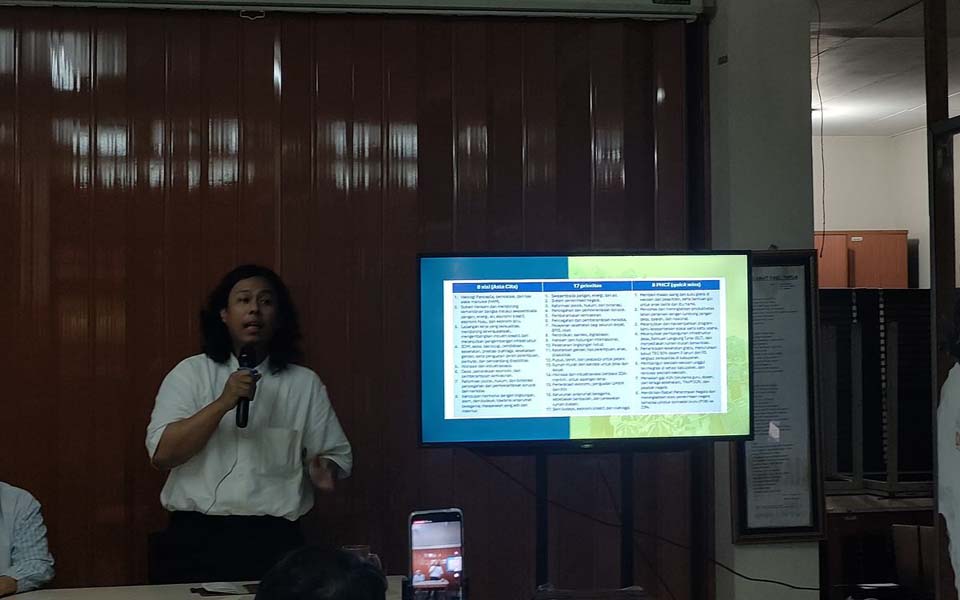Jakarta – Human rights activists who’s names have been proposed by a number of non-government organisations (NGOs) to sit on the Commission of Truth and Reconciliation are concerned about the selection process at the People’s Representative Assembly (DPR). Based on experience, the DPR prioritises political considerations in the selection of public officials.
Todung Mulya Lubis and Hendardi are two names that were been proposed by the Institute for Public Research and Advocacy (Elsam), the Indonesian Legal Aid Foundation (YLBHI), Nusa Bangsa Solidarity (SNB) and the Footbridge Peace Institute. On Wednesday April 20 in Jakarta, Lubis told Kompas that he was reluctant to sit on the commission because he is also concerned about the DPR’s selection process.
Lubis had previously failed to become a member of the National Human Rights Commission (Komnas HAM) after he took part in a fit and proper test at the DPR. Hendardi who is the chairperson of the central board of the Indonesian Legal Aid and Human Rights Association expressed similar concerns. Hendardi admitted that a number of NGO activists and the families of the victims of 1965 had asked him to participate in the nominations for the commission.
“I haven’t made any decision yet, but I’m concerned about the selection [process] at the DPR”, said Hendardi who acknowledged that he did not know exactly how the DPR will select the candidate members for the commission. For Hendardi, too much of the DPR’s considerations are political. He gave the example of how a lawyer who had little experience in the field of human rights was allowed by the DPR to become a member of Komnas HAM.
Delays
Contacted separately, the senior representative of the DPR’s Commission III, Akil Mochtar, expressed regret over the government’s slowness in responding to the mandate of Law Number 27/2004 on the Commission for Truth and Reconciliation which mandates the government to form the commission within six months after the law was enacted on October 6. This means that at the latest, the commission should be formed by April 5, but so far it is still at the stage where the selection committee is seeking candidates.
“I am disappointed with the government’s slow response because actually its legitimisation under law is already clear. Now it’s up to the government if it wants to resolve past human rights issues or not”, asserted a DPR member from the Golkar Party fraction from the West Kalimantan electoral district when speaking to Kompas on Wednesday.
Mochtar warned that after the selection committee had proposed 42 candidates, 21 of which would be chosen by the president, these names must still get the DPR’s approval. Mochtar estimates that the fit and proper test, which is being organised by the DPR itself, will require around one to three months to complete. “Don’t [rush the process] because it’s running late, because if in the end we are driven by limited time this will hurt society”, he explained.
According to Mochtar, the DPR’s Commission III will conduct the fit and proper test but government has not yet determined when because it is waiting for the presentation of candidates by the government. Mochtar could not confirm whether or not the DPR would simply accept all of the candidates submitted by the president because this is totally determined by the quality and track record of the candidates. (sut/bdm)
[Translated by James Balowski.]






